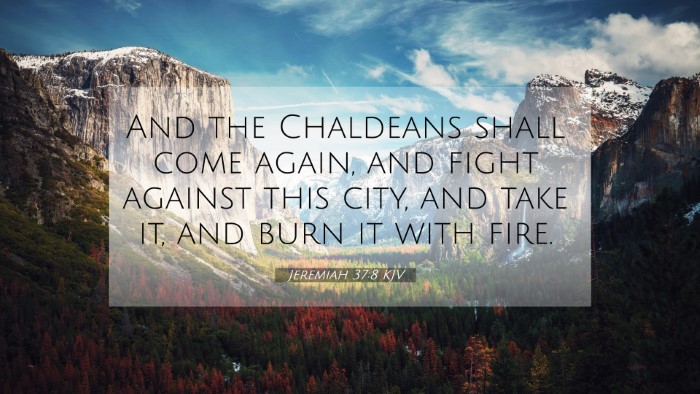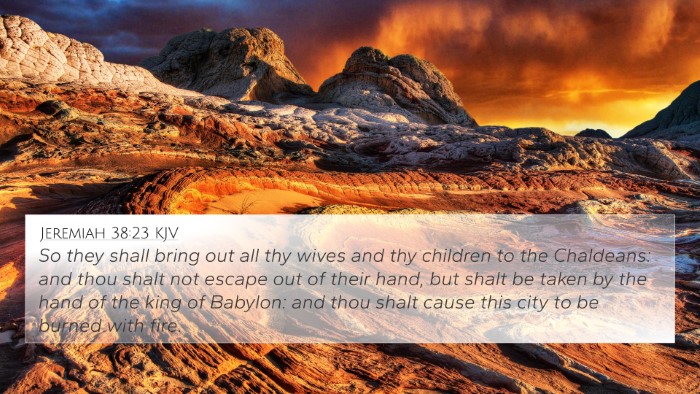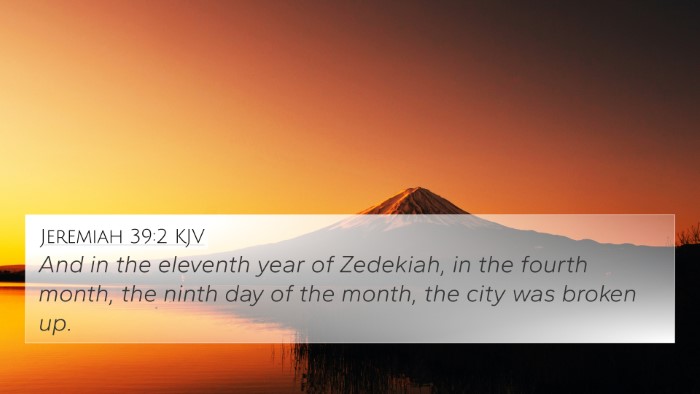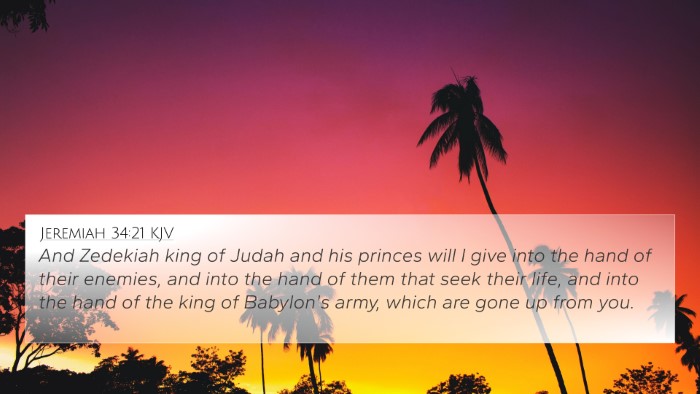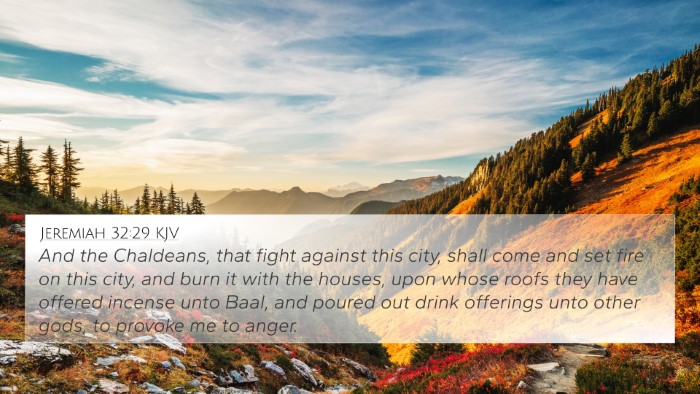Understanding Jeremiah 37:8
In Jeremiah 37:8, the prophet conveys a dire warning regarding the impending fate of Jerusalem as it faces the siege from Babylon. This verse encapsulates themes of prophecy, judgment, and the consequences of disobedience to God’s covenant. The context of this verse reveals the struggle and turmoil experienced by the people of Judah during the Babylonian siege.
Verse Text
"And the Chaldeans shall come again, and fight against this city, and take it, and burn it with fire." (Jeremiah 37:8)
Interpretation and Meaning
The message of Jeremiah 37:8 is grounded in the prophetic warnings against the stubbornness of Judah’s leaders and people. The verse is a stark reminder of God’s sovereignty and the certainty of His prophetic declarations. The insistence that the Chaldeans (Babylonians) will come again emphasizes the unalterable plans set by God through Jeremiah. As per the insights of various scholars:
- Matthew Henry: Henry emphasizes the inevitability of God's judgment and how the sins of the people have led them to this dire situation. He describes the coming conflict as a direct result of their refusal to heed prophetic warnings.
- Albert Barnes: Barnes notes the futility of resistance against God’s declared will, highlighting that human efforts to avoid or escape divine judgment are in vain. He underscores the concept of divine justice being served as Babylon’s army prepares to strike again.
- Adam Clarke: Clarke contextualizes the siege and provides historical insight, suggesting that the coming events were not only certain but also a fulfillment of long-standing prophecies regarding Jerusalem’s fate. His commentary reflects on the overall theme of restoration following judgment.
Thematic Connections
This verse connects thematically to several biblical principles and teachings, especially concerning judgment, mercy, and the hope for future restoration. It invites comparative analysis with other scriptures that discuss similar themes.
Related Bible Cross References
- Jeremiah 21:10: God’s judgment on Jerusalem.
- Jeremiah 32:28-29: The promise of Babylon’s dominion over Judah.
- Lamentations 1:8: The portrayal of Jerusalem’s sorrow due to its sin.
- Ezekiel 24:1-2: The siege of Jerusalem and the significance of its fall.
- 2 Kings 25:8-10: The account of the destruction of Jerusalem.
- Isaiah 39:5-7: Prophecy regarding the Babylonian captivity.
- Matthew 24:2: Jesus references the destruction of the temple, linking ancient prophecies with future events.
- Revelation 18:2: The fall of Babylon, symbolizing God’s final judgment.
- Romans 11:22: The severity of God in the context of His covenant people.
- Micah 3:12: Foretelling the destruction of Zion due to the people's sins.
Conclusion
Jeremiah 37:8 serves as a powerful reminder of the weight of prophetic words and their implications on the lives of individuals and nations. Understanding this verse through cross-references enriches our comprehension of the scriptural narrative and highlights the interconnectedness of biblical texts. Through tools for bible cross-referencing and comprehensive guides to thematic connections, we can delve deeper into the meanings and lessons encapsulated within these verses, enhancing our biblical study experiences.
Exploring Scriptural Cross-Referencing
Cross-referencing Bible verses, such as those highlighted above, aids in forming a holistic view of scriptural teachings. Defining the connections between Bible verses allows for a deeper thematic analysis and enriches our understanding of God's message through His Word.


